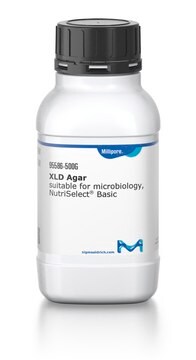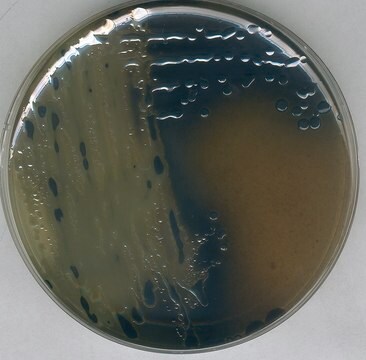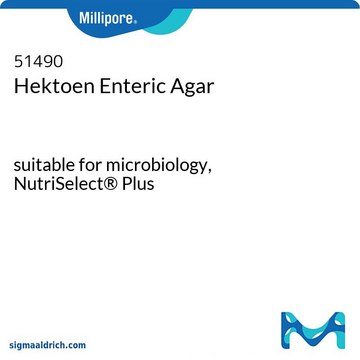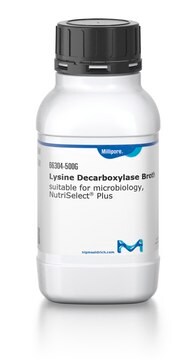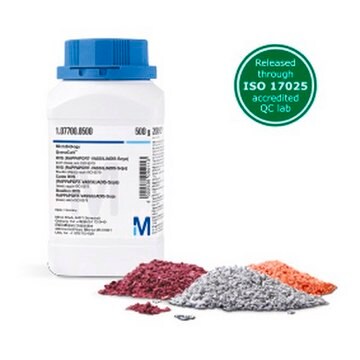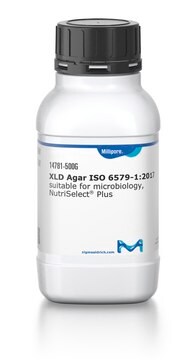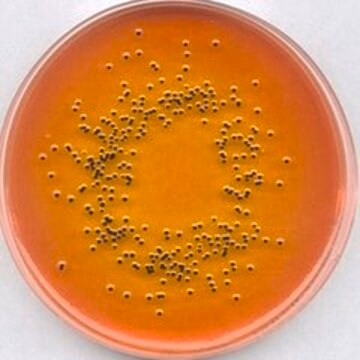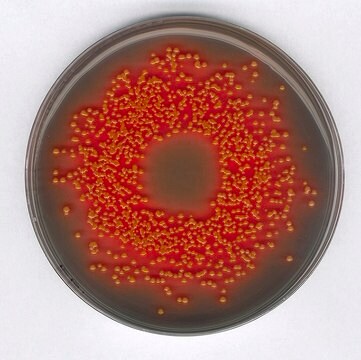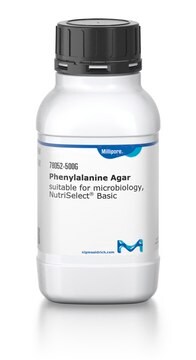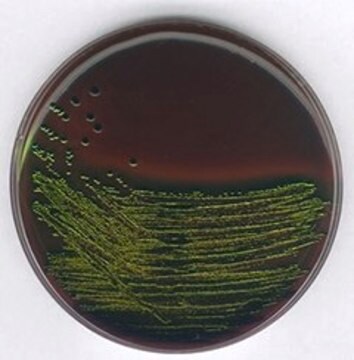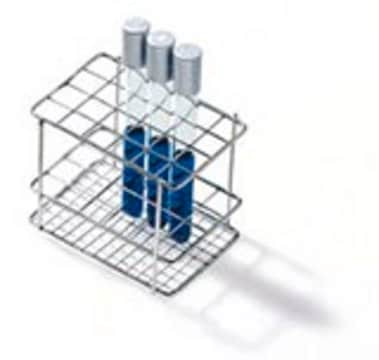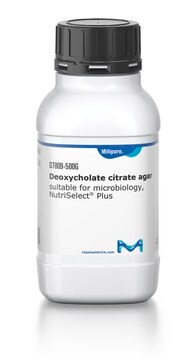95388
Bismuth sulfite Agar
suitable for microbiology, NutriSelect® Basic
About This Item
Productos recomendados
agency
according to GB 4789.4-2016
Quality Level
sterility
non-sterile
form
powder
shelf life
limited shelf life, expiry date on the label
composition
agar, 15 g/L
bismuth ammonium citrate, 1.85 g/L
brilliant green, 0.025 g/L
disodium hydrogen phosphate, 4 g/L
D(+)-glucose, 5 g/L
iron(II) sulfate 7x H2O, 0.55 g/L (equivalentto 0.3g/L iron(ll) sulfate water free)
meat extract, 5 g/L
mixed peptone, 10 g/L
sodium sulfite, 6.15 g/L
manufacturer/tradename
NutriSelect® Basic
technique(s)
microbiological culture: suitable
final pH
7.6±0.2 (25 °C)
application(s)
clinical testing
environmental
food and beverages
microbiology
suitability
selective and differential for Salmonella spp.
Application
The prepared agar is turbid and greenish-yellow.
Preparation Note
Footnote
The designations basic, plus, or prime are added to indicate the quality control level, from basic quality control to standard QC plus to prime for full regulatory compliance.
Legal Information
hcodes
pcodes
Hazard Classifications
Aquatic Chronic 3
supp_hazards
Storage Class
11 - Combustible Solids
wgk_germany
WGK 3
flash_point_f
Not applicable
flash_point_c
Not applicable
ppe
Eyeshields, Gloves, type N95 (US)
Elija entre una de las versiones más recientes:
¿Ya tiene este producto?
Encuentre la documentación para los productos que ha comprado recientemente en la Biblioteca de documentos.
Los clientes también vieron
Artículos
Salmonella contamination is the second leading cause of food-borne illness worldwide. Controlling outbreaks of Salmonella is an important task for food regulators, restaurants and the food industry in general. The Salmonella family includes over 2,300 serotypes of bacteria, but two types, Salmonella enteritidis and Salmonella typhimurium, are responsible for about half of all human infections. Most outbreaks of Salmonella are traced back to dairy, poultry and meat products, but Salmonella can grow on nearly any food. Chicken, eggs and their derivative products are particularly high risk.
Nuestro equipo de científicos tiene experiencia en todas las áreas de investigación: Ciencias de la vida, Ciencia de los materiales, Síntesis química, Cromatografía, Analítica y muchas otras.
Póngase en contacto con el Servicio técnico